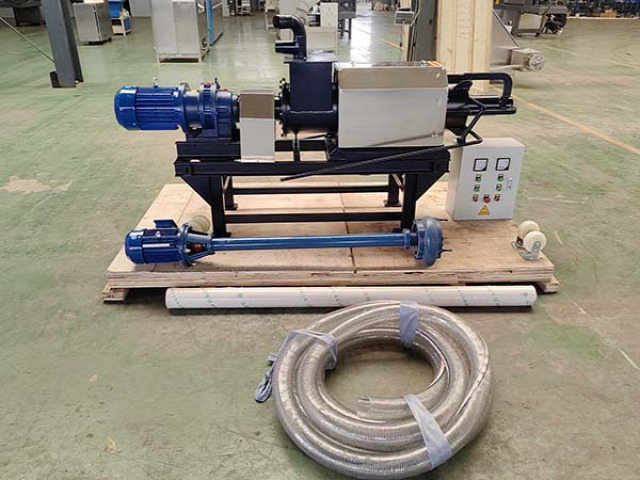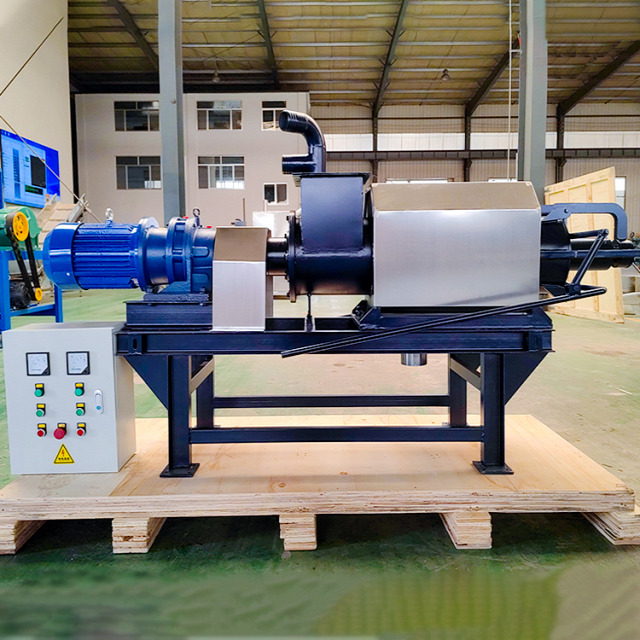Dairy farming is a cornerstone of agriculture, providing essential products such as milk, cheese, and butter. However, the large-scale production of dairy comes with environmental challenges, including the management of manure, which can be a significant source of pollution. To address this issue, dairy farmers have turned to innovative technologies like manure separators. In this blog post, we'll delve into the world of manure separators and explore how they can benefit dairy farms by enhancing efficiency and sustainability.
Manure Challenge
Dairy farms produce substantial amounts of manure, which contains valuable nutrients but also poses environmental risks. When not managed properly, manure can contaminate water sources, release harmful gases, and contribute to greenhouse gas emissions. Finding ways to deal with this waste effectively is crucial for the well-being of both the environment and the dairy industry.
Role of Manure Separators
Manure separation systems play a pivotal role in addressing the challenges posed by dairy farm waste. These devices are designed to separate the solid and liquid components of manure, making it easier to manage and utilize both fractions effectively.

1. Improved Nutrient Management:
Manure contains valuable nutrients like nitrogen and phosphorus, which are essential for crop growth. By separating the solid and liquid components, farmers can better control nutrient application, reducing the risk of over-fertilization and nutrient runoff. This, in turn, helps to protect water quality and minimizes the environmental impact of farming.
2. Odor Reduction:
Manure separators help reduce the odor associated with raw manure. Separating solids from liquids can significantly diminish the unpleasant smell, making the farm environment more pleasant for both workers and neighboring communities.
3. Enhanced Bedding Material:
The solid fraction obtained from the manure separator can be used as high-quality bedding material for dairy cows. This repurposing not only reduces waste but also improves cow comfort, which can have a positive impact on milk production and animal welfare.
4. Biogas Production:
Many dairy farms are turning to anaerobic digestion systems to convert manure into biogas. Manure separators help by providing a liquid fraction rich in organic matter that is ideal for biogas production. This energy source can be used to power the farm or sold back to the grid, contributing to farm sustainability and profitability.
5. Compliance with Regulations:
Manure separators can aid dairy farms in meeting environmental regulations related to nutrient management and waste disposal. Proper animal waste management helps farmers avoid fines and penalties while also demonstrating a commitment to sustainable practices.

Choosing the Right Manure Separator
Selecting the right manure separator is crucial for maximizing its benefits. When making a choice, consider the following factors:
1. Farm Size:
The size and capacity of the manure separator should match the scale of your dairy operation. Smaller farms may require simpler, more compact models, while larger operations will need high-capacity separators.
2. Solid-Liquid Separation Efficiency:
Different separators offer varying degrees of separation efficiency. Some models are better at separating finer solids, while others are designed for larger particles. Choose a separator that meets your specific needs.
3. Maintenance Requirements:
Manure separators require regular maintenance. Consider the ease of maintenance and the availability of replacement parts when selecting a model to ensure minimal downtime.
4. Integration with Other Systems:
Manure separators should seamlessly integrate with other farm systems, such as biogas digesters or nutrient management plans. Compatibility is essential for an efficient, holistic approach to waste management.
Conclusion
In the world of modern dairy farming, cow dung dryer machines have become essential tools for enhancing sustainability and efficiency. By effectively managing and repurposing manure, these devices not only reduce the environmental impact of dairy operations but also improve farm profitability and compliance with regulations.
As dairy farmers continue to seek innovative solutions for their waste management challenges, manure separators stand out as a clear choice. Their ability to separate solids and liquids, reduce odors, and repurpose waste materials is a testament to the dairy industry's commitment to a more sustainable and eco-friendly future.

